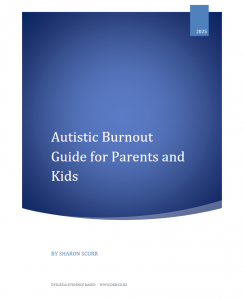Autistic Burnout Guide for Parents and Kids
Over the past two years, I’ve been on a deeply personal learning journey, not because I planned to, but because I needed to. As a parent of two children who are autistic, ADHD, and have challenges like dyslexia, I’ve spent a lot of time trying to understand how to best support them in a world that often doesn’t see their needs clearly.
In that time, I’ve attended training courses, watched webinars, read research articles, followed blogs, and learned from both professionals and the lived experiences of autistic adults. And through it all, I kept thinking, I wish I had known this earlier.
I’ve had so many conversations with parents who are doing their very best, and yet many have never heard of autistic burnout. It’s something that’s still not widely talked about, even though it affects so many of our children. When I support parents trying to get help for their child, I often end up sending them information on autistic burnout just to help make sense of what’s happening.
One of the most important things I’ve learned is this, when a child is in an autistic burnout, their ability to learn drops dramatically. The deeper into burnout they are, the more their energy is focused on coping and survival, not schoolwork or learning. This isn’t about defiance or laziness. It’s the nervous system doing its best to protect them.
That’s why I created this document.
It brings together everything I’ve learned in one place, including how burnout looks in children (especially those who also have ADHD, dyslexia, or dyspraxia), and what kinds of trauma-informed, neuro-affirming strategies can help support recovery. It’s written for both parents and children, and it includes practical ideas that can be shared with schools or support teams.
If your child seems exhausted, shuts down at home after school, avoids tasks they once managed, or is suddenly struggling, this guide might help you understand why.
Full disclosure — I’m not a psychologist or a trained expert. I’m just a parent who’s spent the last few years learning everything I can to help my own children. This isn’t a clinical guide, it’s a resource created by someone who’s walked the same path many of you are on.
I pulled this together so other families wouldn’t have to spend hours searching for answers like I did. If this document helps even one child feel seen, heard, and better supported, then it’s done what I hoped it would.
I hope you find this document helpful on your journey.
Sharon Scurr
